There are so many healthy, baby-friendly foods out there, but superfoods are the most nutritious of all. These natural foods are filled with essential nutrients, vitamins, and minerals and they’re easy to incorporate into your baby’s diet. So, I’ve compiled a list of the best superfoods for baby to include on your grocery list, as well as a round-up of recipes your child is sure to love. Just be sure to consult your pediatrician before you introduce any new food to your infant, and only give your baby one new food at a time (wait a few days to ensure there’s no allergic reaction, before you move on to the next new thing).
1. Avocados (6+ months)
Avocados are a rich source of unsaturated fats, which play a key role in maintaining a healthy heart. This versatile fruit is known for its high nutrient value and can be added to all sorts of dishes, savory or sweet, due to its mild flavor and rich, creamy texture.
2. Bananas (6+ months)
Potassium-rich bananas are naturally free of fat and cholesterol. This fiber-filled fruit is also chock full of vitamins B6 and C.
3. Beans and lentils (8+ months)
Beans and lentils are a great sources of plant-based protein, iron, folate, fiber, zinc, and manganese. To make beans and lentils baby friendly, soak them overnight, then drain, rinse, and cook until very soft.
4. Blueberries (6+ months)
Blueberries contain antioxidants, which work to neutralize free radicals linked to the development of cancer and cardiovascular disease. They are loaded with vitamin C and are an excellent source of manganese, which plays an important part in bone development and converting carbohydrates and fats into energy.
5. Broccoli (8+ months)
Of all the cruciferous vegetables, broccoli stands out as the most concentrated source of vitamin C and contains high levels of calcium and vitamin K, both of which are important for bone health, as well as anticancer phytonutrients. Broccoli is also high in fiber, which aids in digestion, helping prevent constipation.
6. Dark leafy greens (6+ months)
Leafy greens, such as kale and spinach, are major sources of iron and vitamin C. They are low in fat and contain high levels of vitamin K, dietary fiber, potassium, and magnesium. Dark leafy greens are rich in phytochemicals, such as lutein and beta-carotene, which help reduce the risk of cancer, heart disease, and other illnesses.
7. Eggs (organic: at pediatrician’s discretion)
Eggs are easily digestible and are high in iron, folate, and vitamins A and E and are a great source of protein. They’re one of the few foods that naturally contain vitamin D, which helps the body absorb calcium.
8. Greek yogurt (6+ months)
Greek yogurt has two to three times the amount of protein of regular yogurt and less sugar. Yogurt is a great food to introduce to baby at six months since it boosts the immune system and supports brain and heart health. It’s a good source of calcium and vitamin D and is known to boost immunity and aid digestion.
9. Oats (6+ months)
Oats provide high levels of fiber and protein, and low levels of fat. Fiber-rich whole grains like oatmeal digest slowly, providing kids with a steady stream of energy. The high fiber content and the complex carbohydrates slow down the conversion of this whole food to simple sugars, while the high levels of magnesium encourage the body’s proper use of glucose and insulin secretion.
10. Quinoa (8+ months)
Quinoa is naturally gluten-free and incredibly nutritious, containing iron, B-vitamins, magnesium, phosphorus, potassium, calcium, vitamin E, and fiber. It is one of the most protein-rich foods we can eat and is one of only a few plant-based foods that make a complete protein, containing all nine essential amino acids.
11. Root vegetables (6+ months)
Root vegetables, like carrots and sweet potatoes, make the perfect weaning food because they are naturally sweet and have a smooth, creamy texture when pureed. Their delicate flavour makes it easy to combine them with a variety of different fruits, vegetables, and proteins. Root vegetables, depending on the specific veggie, are loaded with calcium, potassium, vitamin C, and more.
12. Salmon (6+ months)
Salmon is an outstanding source of heart-healthy omega-3 fats, which play a crucial role in retinal and brain development and are especially important for children in the first two years of life. (Be sure to pick wild salmon, which is lower in mercury and higher in omega-3 fatty acids.)
Featured image: Getty Images
More Ideas for Baby-Led Weaning:
- Introducing Solids – A Month by Month Schedule
- Superfoods for Baby: 8 Uber-Healthy Ingredients to Add Now
- How to Introduce Meat & Protein to Baby’s Diet
Best Superfoods for Baby
-
Lemon Dill Salmon Puree
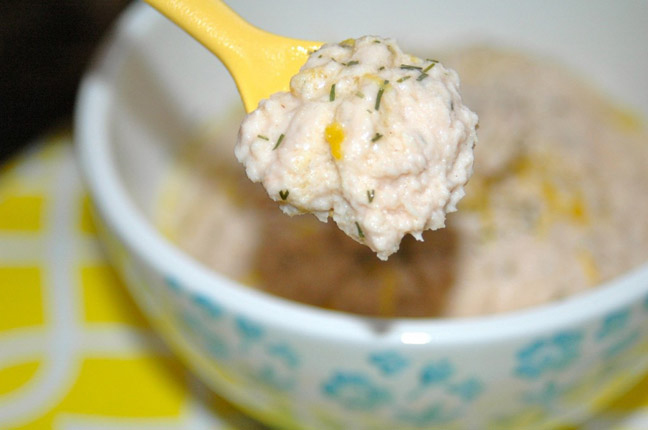
Make sure baby gets a healthy dose of omega 3s! There's no better way to do it than with salmon. Fish can be hard with babies sometimes, but this lemon dill salmon puree is light and tasty.
Get the Lemon Dill Salmon Puree recipe at Bites for Babies
-
Apple Crumble Yogurt Parfait
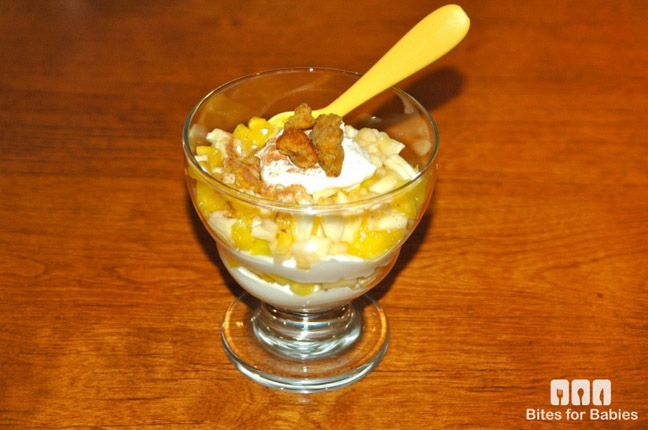
Greek yogurt has two to three times the amount of protein and less sugar than regular yogurt---it's a great thing to keep in the refrigerator at all times.
Get the Apple Crumble Yogurt Parfait recipe at Bites for Babies
-
Asparagus Potato Frittata
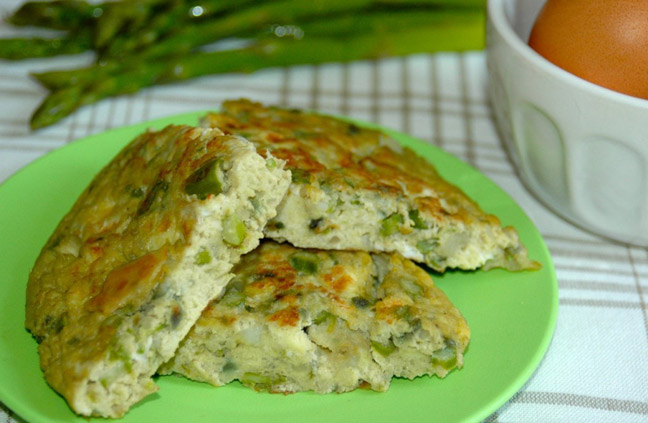
Loaded with eggs and healthy asparagus, this recipe is one that my entire family loves just as much as my toddler. Remember to consult your pediatrician before introducing organic eggs into your baby's diet.
Get the Asparagus Potato Frittata recipe at Bites for Babies
-
Banana Peach Chia Smoothie
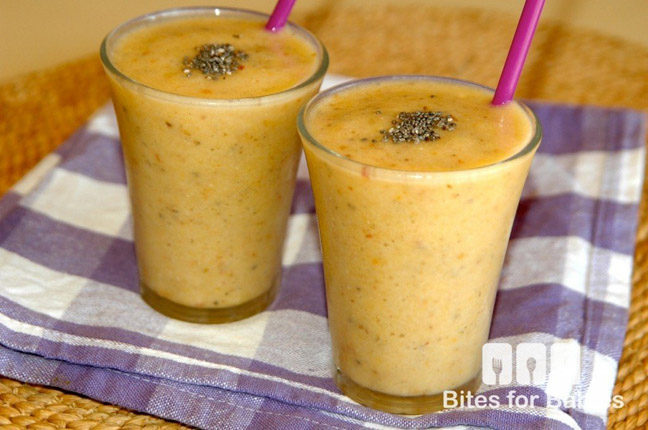
The bananas in this easy to drink smoothie give baby a sustained energy boost.
Get the Banana Peach Chia Smoothie recipe at Bites for Babies
-
Blueberry Chia Jam
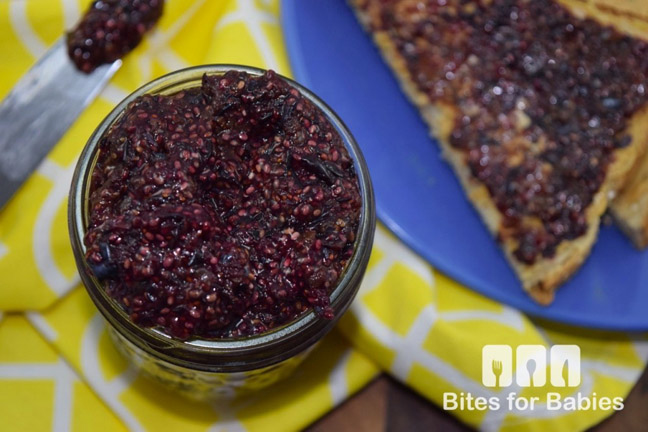
Sugar-free jam is apparently on the GMO hit-list, so I like to make my own. Chia seeds are packed with 10g of fiber and nearly 5g of protein per ounce, making them a world-class superfood on their own.
Get the Blueberry Chia Jam recipe at Bites for Babies
-
Broccoli Mac n' Cheese Bake

Bone health is key as babies develop rapidly, and broccoli stands out as the most concentrated source of vitamin C and contains high levels of calcium and vitamin K, both of which are important for growing babies.
Get the Broccoli Mac n' Cheese Bake recipe at Bites for Babies
-
Creamy Avocado Pasta
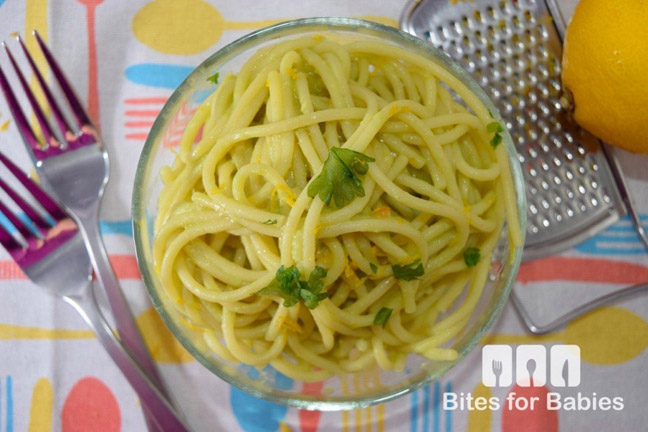
Avocados are the superfood that is a staple around our household; it's perhaps one of the most nutrient dense and filling fruits. Avocado pasta is a delicious way to mimic Alfredo pasta without all the animal fat.
Get the Creamy Avocado Pasta recipe at Bites for Babies
-
Coconut-Curried Lentils and Brown Rice
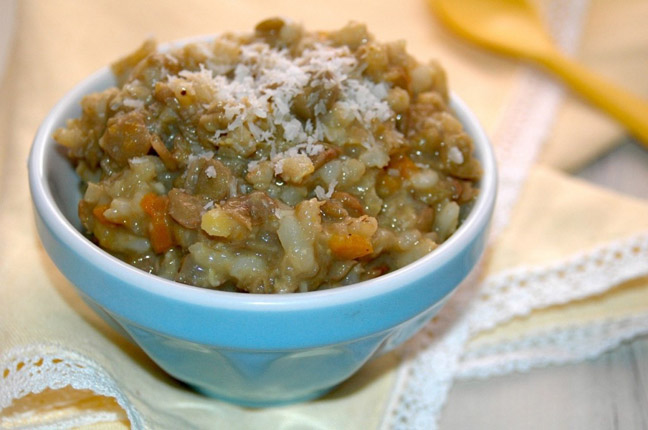
Lentils are high in protein and other essential nutrients, including folate, iron, potassium, and a slew of antioxidants. Even better, they keep in the pantry indefinitely and are super simple to cook up.
Get the Coconut-Curried Lentils and Brown Rice recipe at Bites for Babies
-
Roasted Root Vegetable Mash
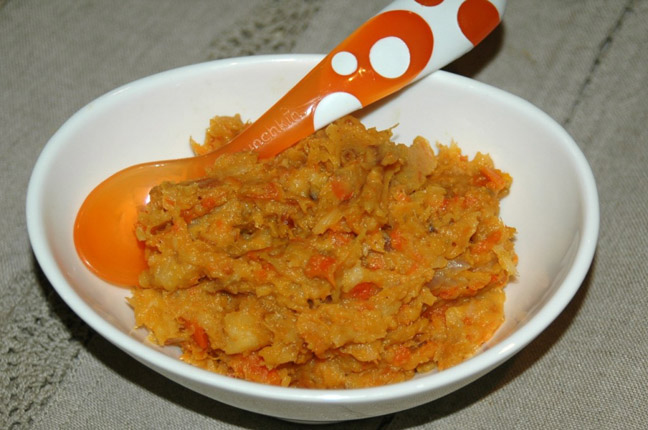
Naturally sweet with a smooth creamy texture when pureed, root veggies are an easy first food for babies.
Get the Roasted Root Vegetable Mash recipe at Bites for Babies
-
Spinach Chickpea Hummus
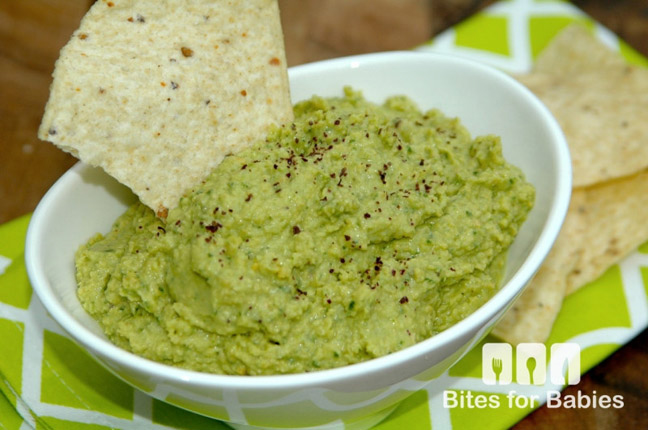
My kids love to dip crackers, chips, and veggies into this tasty dip.
Get the Spinach Chickpea Hummus recipe at Bites for Babies
-
Pumpkin Pie Overnight Oats
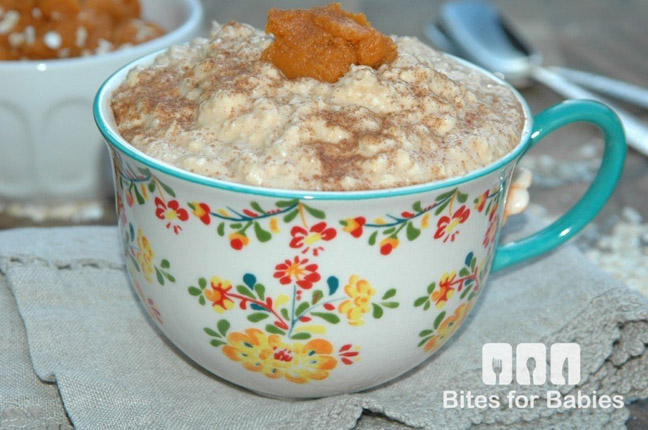
This no-fuss recipe delivers high levels of protein and fiber and is perfect for fall months when pumpkin is plentiful!
Get the Pumpkin Pie Overnight Oats recipe at Bites for Babies
-
Quinoa Pizza Muffins (ideal for baby-led weaning)
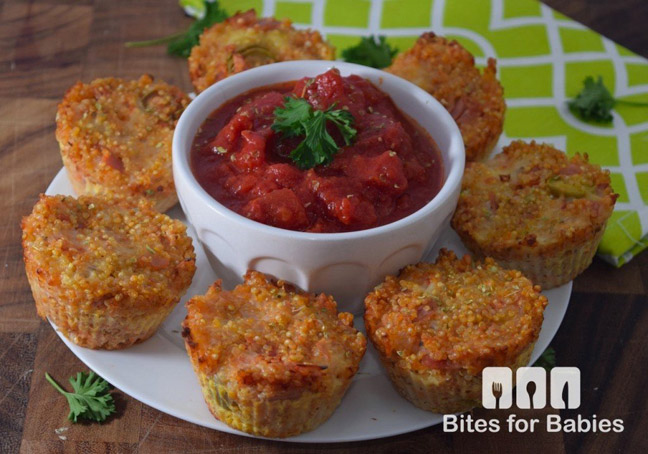
Quinoa is a complete protein, containing all nine essential amino acids. This recipe is especially great if your family doesn't eat a lot of meat.
Get the Quinoa Pizza Muffins recipe at Bites for Babies








